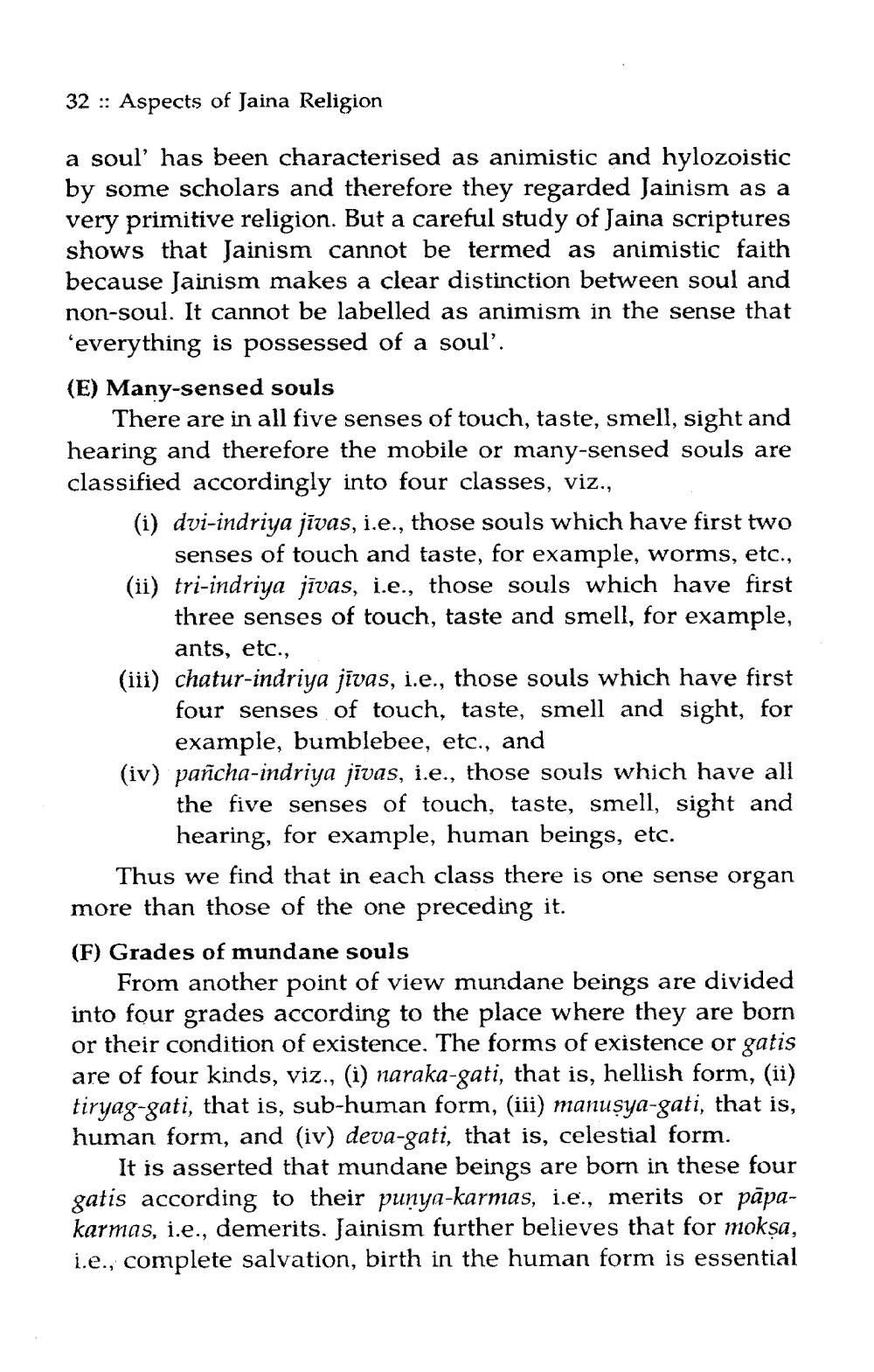________________
32 :: Aspects of Jaina Religion
a soul' has been characterised as animistic and hylozoistic by some scholars and therefore they regarded Jainism as a very primitive religion. But a careful study of Jaina scriptures shows that Jainism cannot be termed as animistic faith because Jainism makes a clear distinction between soul and non-soul. It cannot be labelled as animism in the sense that 'everything is possessed of a soul'. (E) Many-sensed souls
There are in all five senses of touch, taste, smell, sight and hearing and therefore the mobile or many-sensed souls are classified accordingly into four classes, viz.,
(i) dvi-indriya jīvas, i.e., those souls which have first two
senses of touch and taste, for example, worms, etc., (ii) tri-indriya jīvas, i.e., those souls which have first
three senses of touch, taste and smell, for example,
ants, etc., (iii) chatur-indriya jīvas, i.e., those souls which have first
four senses of touch, taste, smell and sight, for
example, bumblebee, etc., and (iv) pañcha-indriya jīvas, i.e., those souls which have all
the five senses of touch, taste, smell, sight and
hearing, for example, human beings, etc. Thus we find that in each class there is one sense organ more than those of the one preceding it. (F) Grades of mundane souls
From another point of view mundane beings are divided into four grades according to the place where they are born or their condition of existence. The forms of existence or gatis are of four kinds, viz., (i) naraka-gati, that is, hellish form, (ii) tiryag-gati, that is, sub-human form, (iii) manusya-gati, that is, human form, and (iv) deva-gati, that is, celestial form.
It is asserted that mundane beings are born in these four gatis according to their punya-karmas, i.e., merits or pāpakarmas, i.e., demerits. Jainism further believes that for mokşa, i.e., complete salvation, birth in the human form is essential




